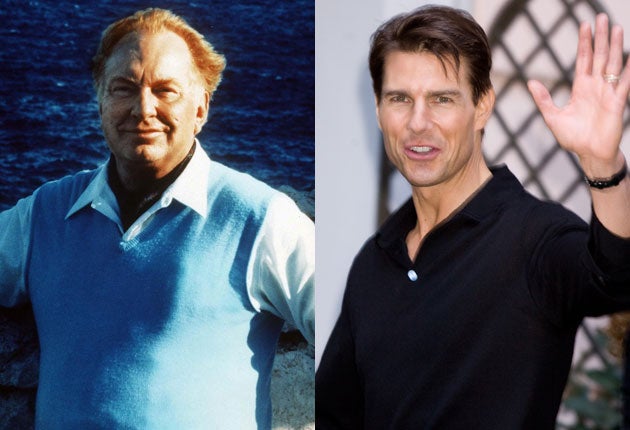Tom Cruise and a trial that could drive Scientology out of France
Movement accused of 'organised fraud' against two female members persuaded to part with €20,

The Scientology movement went on trial in Paris yesterday for "organised fraud" in a case which could lead to the cult's organising bodies being outlawed in France.
The French state prosecution service has failed to back the trial but denies that its decision was influenced by the lobbying of French politicians, including Nicolas Sarkozy before he became President, by leading Scientologists, including the actor Tom Cruise. After an 11-year inquiry, following complaints from four French former Scientologists, an independent, investigating magistrate decided that the prosecution should go ahead.
Two female plaintiffs allege that, between 1997 and 1999, the French movement persuaded them to pay the equivalent of €20,000 each on drugs, vitamins, counselling, saunas and equipment to improve their mental and physical health. This included an "electrometer" to measure the state of their "spiritual condition".
The movement is accused of pretending to "identify and resolve alleged psychological difficulties" and "promoting the personal flowering" of its adepts with the "sole aim of seizing their resources" and "establishing psychological control over them".
Although individual Scientologists, including the cult's founder, L Ron Hubbard, have previously been convicted in France, this is the first time that the movement itself has been accused in a French court of systematic criminal activity. Seven leading members of the movement in France are also on trial.
Scientology, officially accepted as a religion in the United States, is on trial for "escroquerie en bande organisée" – or organised financial fraud. It is also accused of dispensing drugs illegally to its members. Two of the original plaintiffs have withdrawn their actions.
If convicted after a two or three-week trial, the main French organisations of the movement could be ordered to close down.
The cult's French spokeswoman, Danièle Gounord, protested yesterday that Scientology was the victim of a "heresy trial" and "mendacious accusations". Maitre Olivier Morice, lawyer for the two remaining plaintiffs, said the court would have an opportunity "once and for all" to examine the evidence that the leaders of the Church of Scientology are driven by financial gain.
This was the conclusion drawn by the report submitted by the investigating magistrate, Jean-Christophe Hullin, three years ago. He said that Scientology was "first and foremost a commercial organisation" motivated by "an absolute obsession with profit".
The French state prosecution service rejected Judge Hullin's conclusions and decided in 2006 that Scientology should not be sent for trial. Whatever outsiders might think, the prosecution service decided, Scientology was motivated by "religious conviction" and not "personal gain". The actor and Scientologist Tom Cruise had led a lobbying campaign to block the legal action, which is the latest of five against the movement in France since the 1970s. At one point, he sought, and was granted a meeting with M Sarkozy, before he became President. The prosecution service, or parquet, denies any connection between this political lobbying and its decision to recommend an acquittal.
Judge Hullin decided to send the case for trial despite the parquet's decision. Under French law, the investigating magistrate can, in effect, overrule the state prosecution service but the chances of a successful prosecution are inevitably dimmed.
The defendants, including the Church of Scientology itself, are formally accused of cheating the defendants "by systematic use of personality tests of no scientific value ... with the sole aim of selling services and products".
Scientology was founded in 1952 by a former science fiction writer, L Ron. Hubbard. Although the complete teachings of Scientology are available only to senior adepts, the core of its beliefs is that all humans are immortal beings who have strayed from their true nature. Human souls or "thetans" can be reincarnated. Many have already lived on other planets in the universe.
The movement "audits" the souls of members and would-be members and – in return for fees or donations – prescribes "purification" courses, including vitamins, drugs and lengthy saunas.
Scientology claims that it is a religion, like any other religion with beliefs that may seem implausible to outsiders. Its approach would, the cult argues, lead to a world without crime and war.
Join our commenting forum
Join thought-provoking conversations, follow other Independent readers and see their replies
Comments